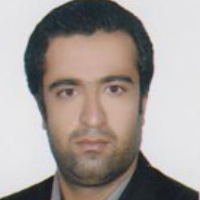The Ennahda movement of Tunisia: Democratic transformation or turning away from Islamism
Author(s):
Article Type:
Research/Original Article (دارای رتبه معتبر)
Abstract:
Investigating the current state of political currents after the Arab revolutions, especially in Tunisia, is one of the multifaceted, complex, and multi-layered issues in political studies, especially in political thought. In this regard, according to the developments of the Ennahda movement in Tunisia between the years 2011-2023 (August), the question has been raised that according to the intellectual tradition of the Ennahda movement, the model and political behavior of this movement, from which rule. Philosophical and political - civil democratic transformation with an Islamic reading or adjustment and deviation from the propositions of Islamic thought? In response, the proposed hypothesis states that the intellectual tradition of the Ennahda movement has moved from classical theology and thought to a new reform with the reading of civil democratic Islam. The findings indicate that this current has been influenced by the intellectual developments in response to the dualism of the West / Islam and the mystery of tradition and modernity, intellectual traditions such as the rationalist school of Al-Zaytouniyeh, and reformist (general) intellectuals. It is oriented from classical theology to reform problematic. From an empirical point of view, the constituent elements of the theoretical and methodical model of the Ennahda movement represent a continuous and relatively uniform approach, and its secular and civil aspects share commonalities with Tunisian non-Islamist movements. With the successful transition of this process from the first stage of challenges (passing Ansar al-Sharia and inevitable - sometimes unstable - consensuses), the second stage began after the dissolution of the parliament and the holding of the second round of the 2019 parliamentary elections, and a new game It was formed from competitions. As a result, the Ennahda movement is trying to push the "extra-legal" and undemocratic dictatorship of the Qais Saeed government towards democratic policies or transfer of power. The conceptual framework is based on a multi-level reading of political thought (ideological evolutions, currents and intellectual systems, and late intellectuals of each discourse) and extraction of influential components and elements to evaluate the issue; the method of collecting materials is library and internet.
Keywords:
Language:
Persian
Published:
Middle East Studies Quarterly, Volume:30 Issue: 3, 2023
Pages:
4 to 38
magiran.com/p2705258
دانلود و مطالعه متن این مقاله با یکی از روشهای زیر امکان پذیر است:
اشتراک شخصی
با عضویت و پرداخت آنلاین حق اشتراک یکساله به مبلغ 1,390,000ريال میتوانید 70 عنوان مطلب دانلود کنید!
اشتراک سازمانی
به کتابخانه دانشگاه یا محل کار خود پیشنهاد کنید تا اشتراک سازمانی این پایگاه را برای دسترسی نامحدود همه کاربران به متن مطالب تهیه نمایند!
توجه!
- حق عضویت دریافتی صرف حمایت از نشریات عضو و نگهداری، تکمیل و توسعه مگیران میشود.
- پرداخت حق اشتراک و دانلود مقالات اجازه بازنشر آن در سایر رسانههای چاپی و دیجیتال را به کاربر نمیدهد.
In order to view content subscription is required
Personal subscription
Subscribe magiran.com for 70 € euros via PayPal and download 70 articles during a year.
Organization subscription
Please contact us to subscribe your university or library for unlimited access!



